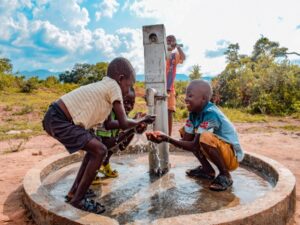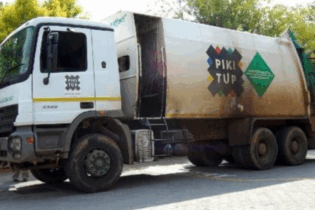Unfortunately, technology alone will never solve the water crisis, we desperately need to go back to basics and adopt a more people centric approach.
By Dan Naidoo, chairman, WISA Our absolute disconnect with people was highlighted in a recent report by the South African Human Rights Commission (SAHRC) around water outages in KwaZulu-Natal. SAHRC noted the “pervasive sense of neglect, disregard and in some instances, contempt, for people’s suffering and their attempts to engage with their municipality through officials and elected representatives”. People are being denied their basic human rights. People are exposed to serious health risks from poor quality water, and a lack of a consistent supply of water is threatening their businesses and jobs. This disconnect with people was again mirrored in the Blue Drop, No Drop and Green Drop Reports that underscored how most people working at water and wastewater plants have a general lack of technical and management capacity. There is a no basic maintenance, and there is little understanding of what needs to be done for every South African to have consistent access to clean drinking water. Technology is often flouted as the ‘holy grail’ that can solve everything. But in these circumstances, it has the potential to create more problems, as technology also needs to be maintained and needs skilled people to operate it. At the moment, very little maintenance is done on water infrastructure and only a few skilled people are operating that infrastructure. Rethinking our way out of a disasterAnyone living for days on end without consistent access to potable water would use the term ‘disaster’. We need to understand that every time a water system fails, we are taking away a human right.
Collectively, as professionals within the water sector, we are all accountable for these failures. We need to all acknowledge this and then look at rebuilding our way out of a water crisis. This is where institutions like WISA play a pivotal role in creating think tanks for water service authorities that are fighting disasters. A human rights-based approach around clarity, transparency and accountability should be adopted. We are all humans first; we are all South Africans first. We should not be competing against one another, but rather look at how we can support one another and solve problems together by exchanging information and sharing resources equitably. There is always an emphasis on tenders and contracts and regulations, but there is no social compact with the people we serve. Behind all the hard engineering and science are human beings that we are serving. Water treatment used to be referred to as ‘water care’. You look after and care for that water and then reticulate that water to members of the public. We need to go back to that philosophy. If we care for people, we can solve the water crisis. We need to remember that behind all the equipment and technology are people who we are morally obliged to serve. If technology does not make a positive impact on the quality of life of people, then it is technology that we do not need.






